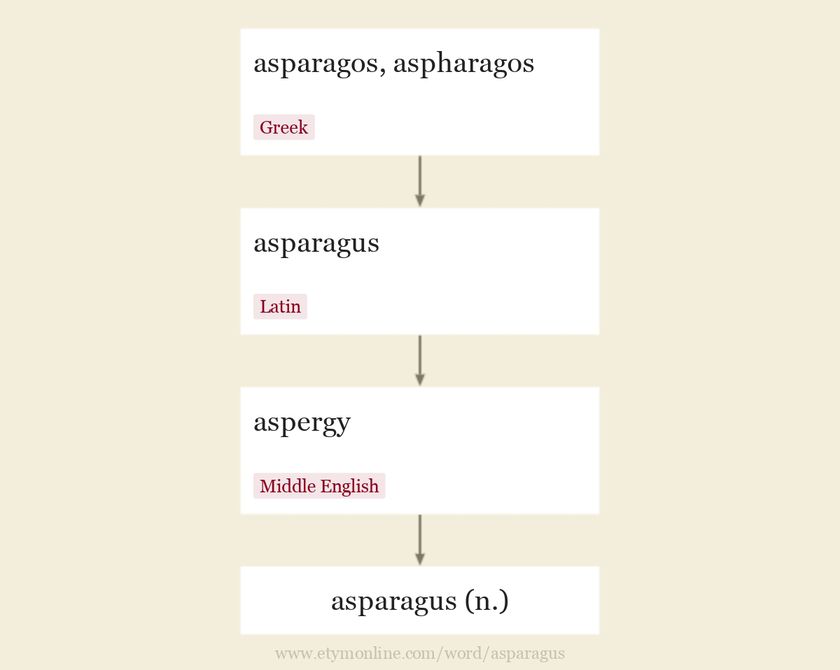asparagus n.
plant cultivated for its edible shoots, late 14c., aspergy; earlier sparage (late Old English), from Latin asparagus (in Medieval Latin often in the form sparagus), from Greek asparagos/aspharagos, which is of uncertain origin; perhaps with euphonic a- + PIE root *sp(h)er(e)g- "
In Middle English, asperages sometimes was regarded as a plural, with false singular aspergy. By 16c. the word had been Englished as far as sperach, sperage. The classical Latin form of the word is attested in English from mid-16c., but was limited at first to herbalists and botanists; the common form from 17c.-19c. was the folk-etymologized variant sparrowgrass, during which time asparagus had "
"In his daily and ordinary talke cetaine phrases he had which hee used very often and significantly [...] To expresse the speedy expedition of a thing done hastily, Quicker, would he say, than SPARAGES can be sodden." [Philemon Holland, "The Historie of Tvvelve Caesars Emperours of Rome," 1606]

updated on January 17, 2023